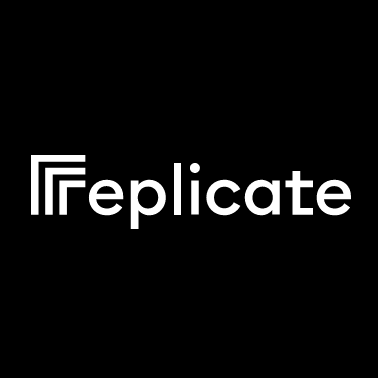Today, we delve into the world of machine learning and explore the revolutionary platform, Replicate AI. This innovative platform aims to simplify machine learning, making it accessible to software developers even without prior machine learning experience.
Founded by Ben Firshman, a former Docker open source product leader, and Andreas Jansson, an ex-machine learning engineer at Spotify, Replicate AI is a groundbreaking platform that aims to make machine learning accessible to all software developers.
Recognizing the rapid advances in artificial intelligence (AI), Firshman and Jansson realized that technical barriers were hindering widespread adoption. Thus, they created Replicate AI, a platform that offers an open-source library of machine learning models. These models can be executed with a few lines of code, eliminating the need for developers to have in-depth knowledge of machine learning.
Replicate AI leverages a Python library to run machine learning models. Using just a few lines of code, developers can utilize these models without needing a deep understanding of machine learning. Here is a brief code snippet to illustrate how it works:
import replicate
output = replicate.run(
"stability-ai/sdxl:2b017d9b67edd2ee1401238df49d75da53c523f36e363881e057f5dc3ed3c5b2",
input={"prompt": "an astronaut riding a rainbow unicorn"},
)
In addition, the Replicate AI API can also be queried directly using your preferred tool:
$ curl -s -X POST \
-H "Authorization: Token $REPLICATE_API_TOKEN" \
-d '{"version": "2b017d9b67edd2ee1401238df49d75da53c523f36e363881e057f5dc3ed3c5b2", \
"input": { "prompt": "an astronaut riding a rainbow unicorn" } }' \
https://api.replicate.com/v1/predictions
Replicate's community of machine learning enthusiasts has shared thousands of models that developers can run. These models can perform a variety of tasks, including:
Developers can explore these models and learn more about the API on the Replicate AI platform.
With Replicate AI, developers can build new products using machine learning without having to deal with the intricacies of Python dependencies, GPU configuration, or Dockerfile creation. The platform offers Cog, an open-source tool that allows developers to package machine learning models in a production-ready container.
Here's a sample of how this works:
build:
gpu: true
system_packages:
- "libgl1-mesa-glx"
- "libglib2.0-0"
python_version: "3.10"
python_packages:
- "torch==1.13.1"
predict: "predict.py:Predictor"
Predictions can then be made using the model:
from cog import BasePredictor, Input, Path
import torch
class Predictor(BasePredictor):
def setup(self):
"""Load the model into memory to make running multiple predictions efficient"""
self.model = torch.load("./weights.pth")
def predict(self, image: Path = Input(description="Grayscale input image")) -> Path:
"""Run a single prediction on the model"""
processed_image = preprocess(image)
output = self.model(processed_image)
return postprocess(output)
This model can then be run locally or built into a Docker image for deployment.
Deploying machine learning models at scale can be a challenge, but Replicate AI makes it easy. The platform can use open-source models off the shelf, or developers can deploy their own custom, private models at scale.
Define your model with Cog, and Replicate AI will automatically generate a scalable API server for it, deploying it on a large cluster of GPUs.
Replicate AI scales according to your traffic. If your model sees a lot of use, the platform scales up to meet the demand. If not, it scales down to zero, eliminating unnecessary charges.
With Replicate AI, you only pay for how long your code is running, meaning you don't have to pay for expensive GPUs when you're not using them.
Replicate AI was launched with a total funding of $17.8 million, including a $12.5 million Series A investment led by Andreessen Horowitz. Other participants included Y Combinator, Sequoia, and angel investors like Figma CEO Dylan Field and Vercel's Guillermo Rauch.
Replicate AI aims to democratize AI, enabling software engineers to use machine learning without needing to be machine learning experts. The idea is to remove the industry's reliance on a limited pool of machine learning experts, and instead, empower software engineers to build AI-powered products and solve business problems.
Replicate AI is not without competition. Other vendors in this space include Hugging Face and OctoML. Tech giants like Google, Amazon, and Microsoft also offer their own solutions for developing and maintaining machine learning models in the cloud.
However, Replicate AI stands out due to its expansive AI library and its focus on simplifying the developer experience. With diffusion models, video editing models, upscaling models, and various image-to-text and text-to-image models, Replicate AI offers a wide range of solutions for developers.
Since its launch, Replicate AI has seen significant growth. Its active user base has grown by 149% month-over-month, with a 125% increase in API calls since the middle of last year. The platform's enterprise customers include Character.ai, Labelbox, and Unsplash.
The growth of generative AI is expected to continue, and Replicate AI is well-positioned to benefit from this trend. Firshman envisions a future where generative AI will transform business operations in customer support, marketing, sales, and content creation. With Replicate AI, this future is closer than ever before.
In conclusion, Replicate AI is revolutionizing the use of machine learning in software development. By making machine learning accessible to all developers, Replicate AI is not only breaking down technical barriers but also fostering innovation in the tech industry.
